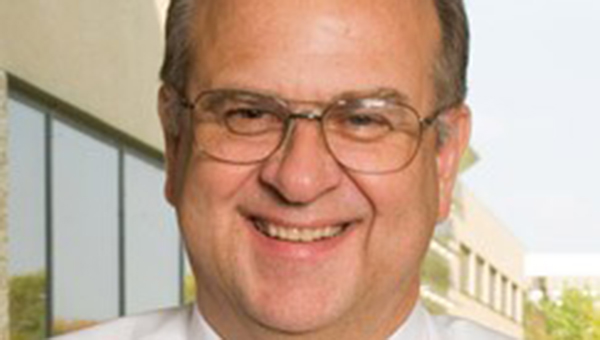Associate Dean of Professional Development and Community Engagement Leroy Hurt was on the hiring committee.
“All the candidates had solid qualifications,” Hurt said. “He had qualifications that were a particular fit for the University.”
Edelbrock grew up in the Pacific Northwest and attended Western Washington State College in Bellingham as a psychology major and went on to pursue his doctorate at Oregon State University in human development and family studies.
He started his career doing three years of research in Bethesda, Maryland, at the National Institutes of Health, where he had a postdoctoral fellowship. For 15 years, he researched how people develop and change over the course of their lives.
After multiple moves to a number of institutions where he continued research and even began teaching, he developed his interest in administration while coordinating a large doctoral program at Penn State in College Station.
“I found it rewarding to be innovative, to solve problems and serve the University, the department, the student population in that way, and that’s where I made the decision I really wanted to move in that direction for this stage of my career,” Edelbrock said.
He then went on to pursue that interest as the associate dean of the graduate school at the University of Georgia. The dean of the graduate school mentored him, and after four years he returned to Penn State, this time on the Philadelphia campus. That campus focused on master’s students who were generally working adults going to school part-time.
“I’m personally oriented towards directions and strategies for program development,” Edelbrock said.
There was a lot of overlap in the jobs he held at Georgia and Penn State to the open dean position at Alabama. He said he saw it as a great opportunity and a big step up in his career to take on such a large enterprise.
“It’s a dynamic period of growth for the University,” Edelbrock said. “It’s booming right now and the college has a big role to play.”
Former dean Carolyn Dahl retired at the end of August 2013. Rebecca Pow has taken on the title of interim dean since then. She will now resume her position as associate dean of academic outreach.
“He’s got a great understanding of universities and higher education from the academic perspective, but he also understands how to work and partner with business and industry,” Pow said.
The College of Continuing Studies at Alabama has many programs that Edelbrock said he is excited about working on. Distance learning is a top priority for the college, he said.
“Our goal is to identify training and education needs that can be met by The University of Alabama and figure out the very best way of meeting those needs,” Edelbrock said.
Many smaller high schools in Alabama take advantage of a state-funded program called ACCESS. The Continuing Studies College is able to provide them online classes that would not otherwise be available to them. These classes are for high school credit, and they let students explore new subjects.
High school students can take online classes offered by the University for college credit. The program is called UA Early College, and it is open to students across the country. Some of these students visit campus during the summer between their junior and senior year to take classes on site. Many of these students go on to enroll at Alabama once they graduate high school. This program is a way for the college to reach out and give high school students a taste of what is happening at the University.
The college coordinates all online classes at the University. While each department’s professors technically teach the class, continuing studies is able to collaborate with those professors to set up and run the online support.
The college has a program called Back to Bama that lets adults who have college credit at the University but were unable to graduate come back to finish their degrees.
The college manages the Osher Lifelong Learning Institute for retired people looking to pick up skills from non-credit courses like cooking, history, photography, writing and more.
Continuing studies offers all kinds of non-credit training and personal development with Bama at Work. They offer environmental and occupational safety through UA Safe State.
“We are really a service oriented college that is highly collaborative both within the University and outside with government agencies, corporations and non-profits,” Edelbrock said.
The Bryant Conference Center plays a large role in the college by being the preferred meeting space for the training and development workshops as well as conferences, awards dinners and weddings.
“We want to make sure the resources that we have at the University and within the college are used to meet existing and emerging training and education needs, and it’s very dynamic – things change over time, month to month and year to year,” Edelbrock said.
Edelbrock said it’s too early to make any large changes in the department. Once he gets settled in, he said he plans to continue making the innovations and updates that continuing education is known for.
“We’re very proud of our history of innovation. We’re very proud of being an experimental college where we’ll try a lot of interesting things for special populations of people,” he said.









